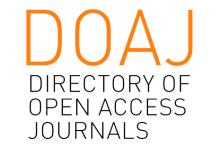Resource information
The main purpose of this paper is to demonstrate how territorial identity, expressed through immaterial and material heritage, especially folklore and traditional crafts, can be a means of economic sustainable development in rural areas. As a case study, we choose the Land of Călata (Hu. Kalotaszeg), a region from North-Western Transylvania, Romania, focusing on two of its best-known villages: Izvoru Crișului (Hu. Körösfő) and Sâncraiu (Hu. Kalotaszentkirály). Izvoru Crișului is appreciated for carpentry and handicrafts products, whilst Sâncraiu is well-known for its Hungarian folk music and dance festival. In order to illustrate how these activities can lead to economic development, we interviewed a craftsman family from Izvoru Crișului and a dance instructor, cofounder of the International folk music and dance camp that is held annually in Sâncraiu. We also analysed several handicrafts stalls from Izvoru Crișului to see exactly what kind of products were being sold in there. The results show that even though traditional crafts could generate an income for the local people, most of the products sold in Izvoru Crișului are not authentic, but brought there from other regions of Romania or abroad. On the other hand, the international folk music and dance camp from Sâncraiu is the best example of how a one-week event can help local economy by generating income for various stakeholders involved in the organisation and realisation of the event, and be the igniter of a larger agro-touristic activity. In the end, we concluded with several remarks concerning the need for raising awareness among the locals how to benefit from their cultural heritage and traditional occupations and we acknowledged the potential of traditional crafts and folklore as a means of diversifying income possibilities in rural areas.


